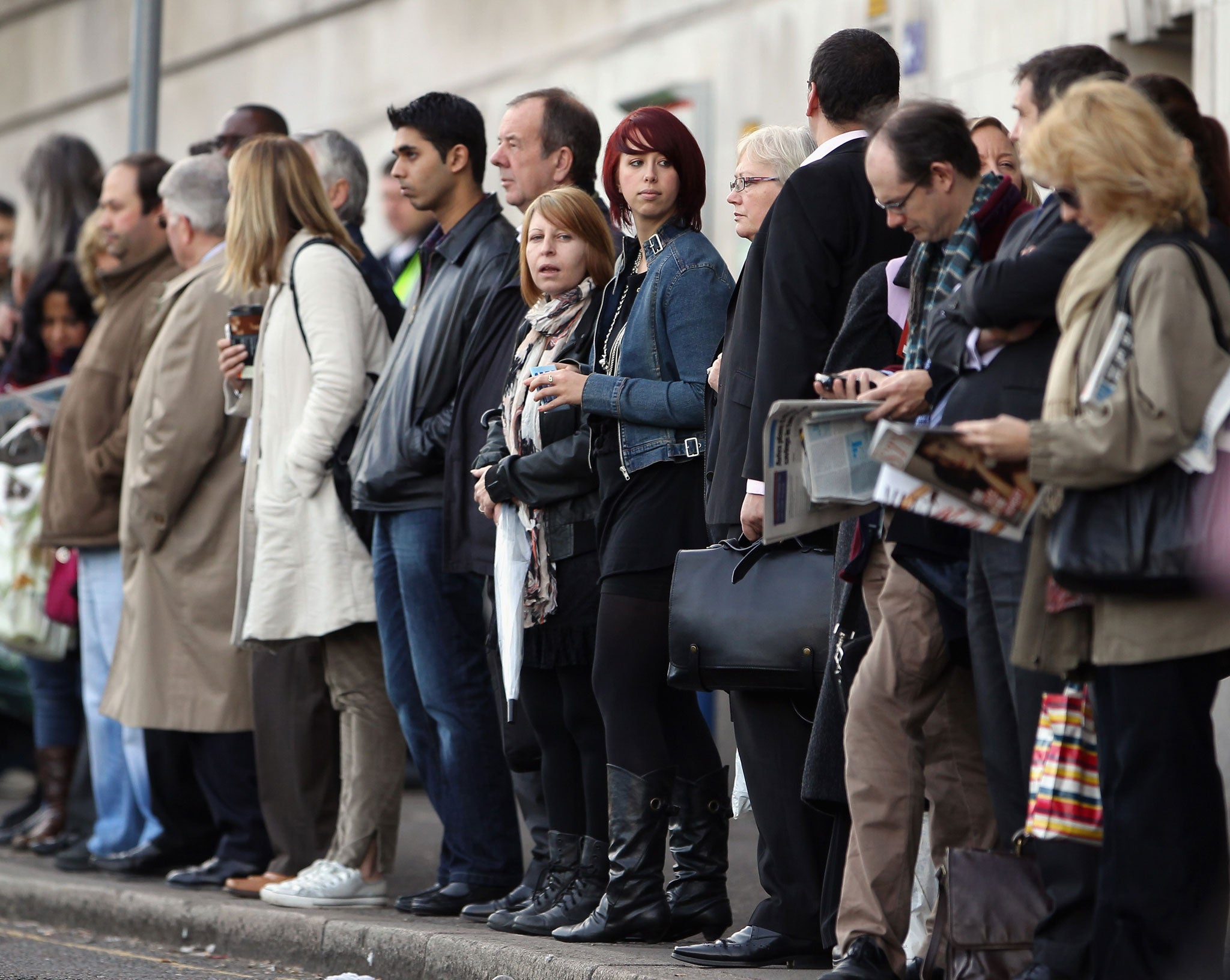Owen Jones: The reality behind the job stats
A new phenomenon of self-unemployment needs investigation

Your support helps us to tell the story
From reproductive rights to climate change to Big Tech, The Independent is on the ground when the story is developing. Whether it's investigating the financials of Elon Musk's pro-Trump PAC or producing our latest documentary, 'The A Word', which shines a light on the American women fighting for reproductive rights, we know how important it is to parse out the facts from the messaging.
At such a critical moment in US history, we need reporters on the ground. Your donation allows us to keep sending journalists to speak to both sides of the story.
The Independent is trusted by Americans across the entire political spectrum. And unlike many other quality news outlets, we choose not to lock Americans out of our reporting and analysis with paywalls. We believe quality journalism should be available to everyone, paid for by those who can afford it.
Your support makes all the difference.Behold the plucky entrepreneur! Britain’s self-employed have now rocketed to record levels, making up one in seven of the workforce. Does a new age of prospering self-made men and women beckon in Cameron’s Britain?
I hesitate partly as I remember my own father’s experience when he lost his job in the mid-1990s. But rather than being suddenly transformed into a new Alan Sugar, in his case self-employment simply meant “getting the odd bit of work if I’m lucky”.
Today, a new phenomenon of self-unemployment needs investigation. As the Resolution Foundation point out, while one million more people have become self-employed since 2000, their median earnings have dropped by a whopping 20 per cent in the years after 2006.
Something has gone wrong – though we don’t know exactly what. And because the data for self-employed people lags by a couple of years, they’re completely missing from the current debate about falling living standards.
The shift towards self-employment is beneficial to many employers. The employed get holidays, sick pay, and in some cases pensions; hiring self-employed people who don’t have such benefits is much cheaper. We clearly need thorough research into how many are “self-unemployed” – simply getting the odd bit of work, that is – rather than running thriving businesses.
The danger, of course, is that this is part of a broader trend to casualise our workforce, driving up the number of zero-hour, temporary and reluctant part-time workers, as the number of full-time workers with job security shrinks. Good for big business, yes, but terrible for working people.
Join our commenting forum
Join thought-provoking conversations, follow other Independent readers and see their replies
Comments